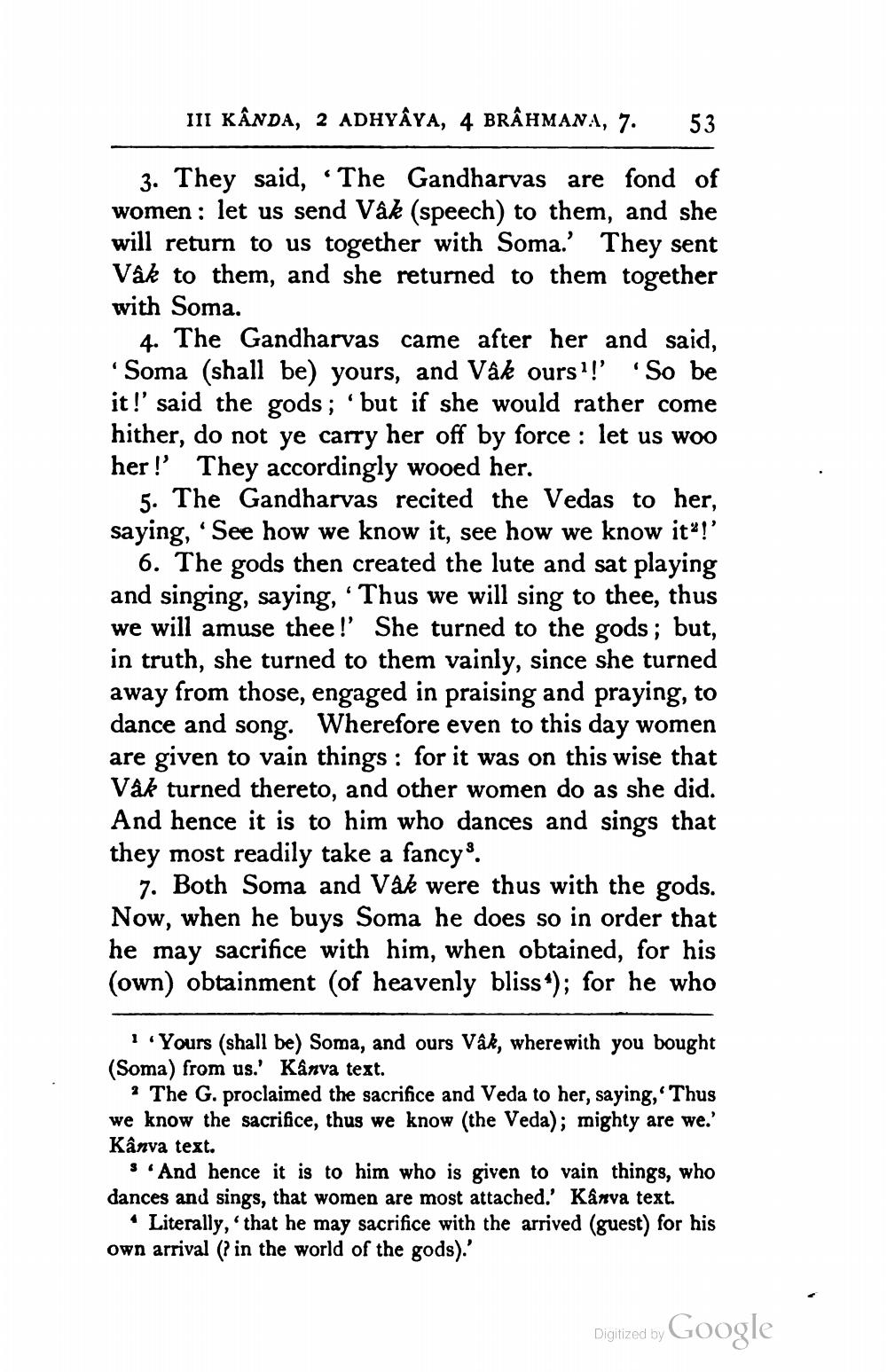________________
III KÂNDA, 2 ADHYAYA, 4 BRAHMANA, 7.
53
3. They said, “The Gandharvas are fond of women: let us send Vâk (speech) to them, and she will return to us together with Soma.' They sent Vâk to them, and she returned to them together with Soma.
4. The Gandharvas came after her and said, Soma (shall be) yours, and Vâk ours?! So be it!' said the gods; 'but if she would rather come hither, do not ye carry her off by force : let us woo her!' They accordingly wooed her.
5. The Gandharvas recited the Vedas to her, saying, 'See how we know it, see how we know it’!'
6. The gods then created the lute and sat playing and singing, saying, 'Thus we will sing to thee, thus we will amuse thee !' She turned to the gods; but, in truth, she turned to them vainly, since she turned away from those, engaged in praising and praying, to dance and song. Wherefore even to this day women are given to vain things : for it was on this wise that Vâk turned thereto, and other women do as she did. And hence it is to him who dances and sings that they most readily take a fancy.
7. Both Soma and Vak were thus with the gods. Now, when he buys Soma he does so in order that he may sacrifice with him, when obtained, for his (own) obtainment (of heavenly bliss“); for he who
1. Yours (shall be) Soma, and ours Vâk, where with you bought (Soma) from us.' Kanva text.
2 The G. proclaimed the sacrifice and Veda to her, saying, 'Thus we know the sacrifice, thus we know (the Veda); mighty are we.' Kânva text.
3.And hence it is to him who is given to vain things, who dances and sings, that women are most attached.' Kanva text.
• Literally, that he may sacrifice with the arrived (guest) for his own arrival (? in the world of the gods).'
Digitized by Google




